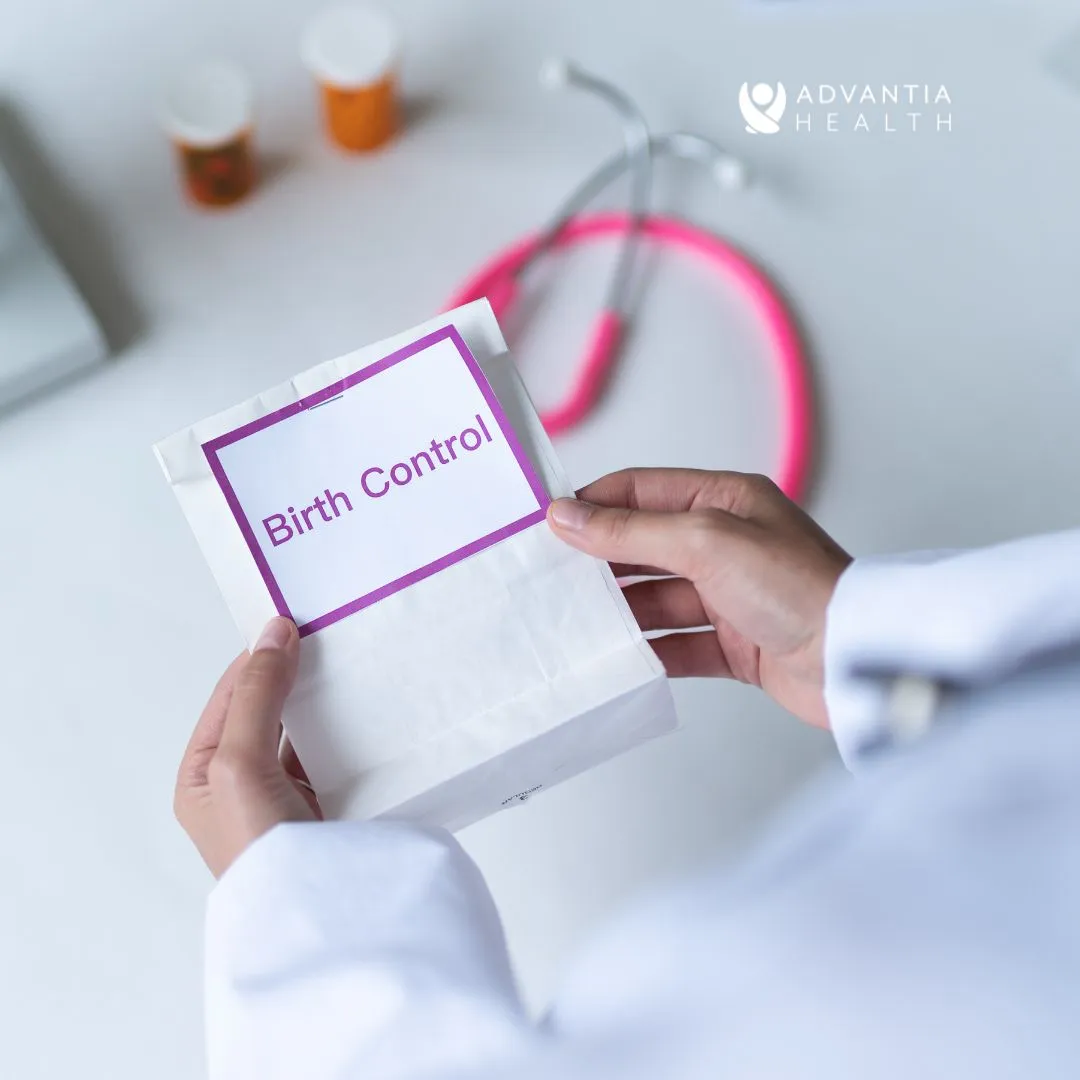
Published on: 5 February, 2024
Read Time: 4 min
As a woman, taking control of your reproductive health is an essential part of overall wellness. Birth control allows people to decide when to have children and helps with menstrual symptoms. This guide discusses various birth control methods, their effectiveness, and when they begin to prevent pregnancy.
At Advantia Health, our dedicated team is committed to helping address your commonly asked questions about birth control. Please schedule an appointment with our women’s health providers. They will help you find the right birth control method for you.
Table of Contents:
-
Different types of birth control and their effectiveness
-
Research-backed information from literature
-
Newer methods like cycle tracking and their adoption
-
Addressing common concerns
-
Summary
Types of Birth Control and Their Effectiveness
Oral Contraceptives (The Pill)
- Effectiveness: 91% with typical use, 99% with perfect use
- Starting Protection: In most cases, protection starts after 7 days of use
Condoms
- Effectiveness: 82% with typical use, 98% with perfect use
- Starting Protection: Immediate, when used correctly
Intrauterine Devices (IUDs)
- Effectiveness: More than 99%
- Starting Protection: Immediate, if inserted during the period, or 7 days if inserted at any other time
Birth Control Implant
- Effectiveness: More than 99%
- Starting Protection: Immediate, if inserted during the first five days of your period, otherwise 7 days
Birth Control Shot (Depo-Provera)
- Effectiveness: 94%
- Starting Protection: After 7 days of the first shot
Important to note that these are just a few examples, and there are several other options available. The effectiveness of each method can vary based on correct and consistent use. Always consult with a healthcare provider to find the best fit for you.
Research and Evidence-Based Facts
Extensive literature supports the effectiveness and safety of various birth control (BC) methods. Studies have consistently shown that certain methods have higher efficacy rates, leading to their preferred status in clinical practice. For instance:
- The hormonal IUD is highly effective and liked by doctors and people for its long-lasting protection and convenience.
- The pill is popular for women as it is easy to use and highly effective when used correctly. Because of its simplicity and high success rate, it is a widely chosen BC option.
Newer Methods and Innovations
In recent years, there has been an emergence of newer birth control methods, catering to different preferences and needs. Cycle tracking is a hormone-free method to track fertility and decide whether to have or avoid pregnancy.
Evidence suggests that cycle tracking, also known as fertility awareness, can be an effective method when adhered to accurately. As more individuals seek non-invasive and hormone-free options, this method has seen increased adoption and interest. To learn more about tracking your cycle, visit the Mayo Clinic’s article, Rhythm method for natural family planning.
Addressing Common Concerns
Several common concerns and misunderstandings often arise when discussing birth control. Let’s address a few of these:
- Does birth control expire? Yes, most forms of birth control have an expiration date, and it’s crucial to check the packaging for this information.
- Can birth control make you tired? Some individuals may experience fatigue as a side effect of certain birth control methods. Consult with your healthcare provider if you notice changes in your energy levels after starting a new method.
- I’m not on birth control, but we use condoms. Are condoms effective? Using protection is good, but it’s also important to have a backup method for double protection against pregnancy.
- Can antibiotics affect birth control? Some antibiotics may make certain birth control methods, like the pill, less effective, according to evidence. Always consult with your healthcare provider when taking antibiotics while on birth control.
A healthcare professional should guide you. This information is meant to supplement, not replace, their personalized advice. Visit a birth control center or talk to an Advantia Health provider for personalized advice on contraception.
Summary
Contraception is not a one-size-fits-all solution. It is crucial to be informed on the different types, their effectiveness, and any concerns you might have. Our providers at Advantia Health are here to help you. Schedule an appointment without hesitation.
We want everyone to get personalized care and support in making informed choices about their reproductive health.
For more articles on contraception and family planning, visit the Birth Control section of our blog.






